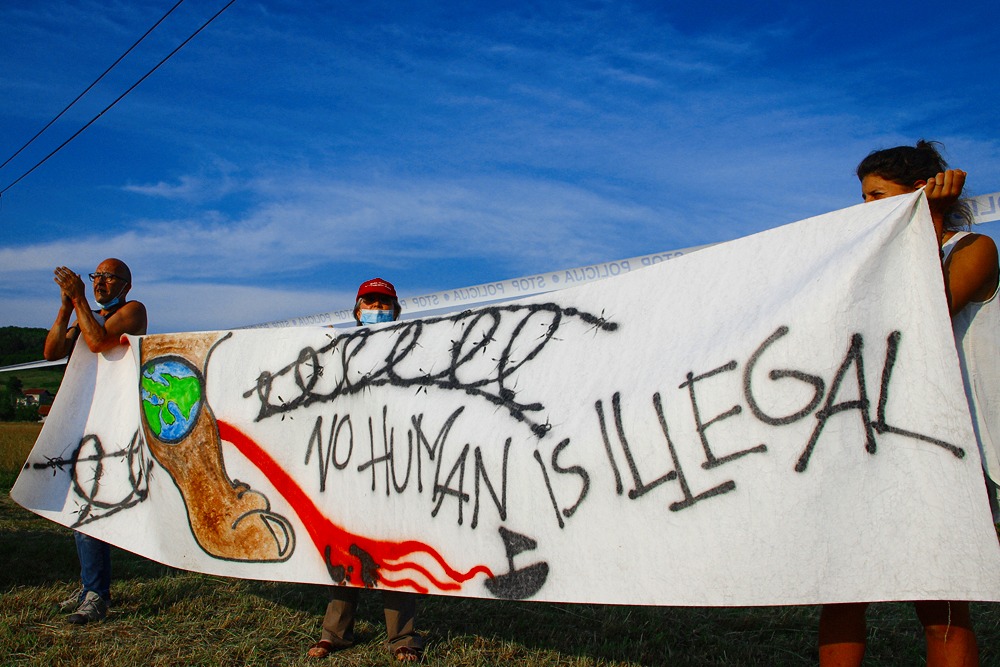Croatia is one of the countries located on the so-called Balkan migration trail, and since 2015, illegal migrants from the Middle East have been trying to use this trail to break into Western Europe. Due to this, Croatia and Hungary have been put under immense pressure as their southern borders are also those of the European Union.
The experiences of these countries in defending their borders against illegal migration may be useful to Polish intelligence and police services, especially since both nations are well-versed in the demanding task of connecting border security with a humanitarian approach to migrants.
While undertaking this task, Croatian and Hungarian police often found themselves under pressure from non-government organizations and media supporting them. This pressure often had the simple aim of provocation.
For example, an article published in the UK’s Guardian last fall claimed that Croatian police officers painted crosses on the heads of illegal migrants who tried to cross the border between Bosnia and Croatia. The Guardian added photos to the article and an additional commentary in which it attributed a desire to “humiliate migrants” to Croatian police. The alleged incidents were to have taken place on May 6 and May 7 in 2020 on the Croatian border with Bosnia.
The Croatian ministry of the interior immediately denounced the message and stated that it was a type of pressure being imposed on the Croatian police ,which has been consistently defending EU borders against illegal migration.
“This odd article is only one of many accusations directed towards the Croatian police. They take place because Croatian services have been consistently introducing measures meant to defend the EU’s external borders and do not permit illegal entry into Croatia. Our state is constantly the target of different groups whose goal is to weaken measures on the border,” the ministry stated.
Interestingly, the Guardian used employees from the NGO “No Name Kitchen” as their sources. According to the Croatian ministry, this is a compromised organization. Minister of the Interior Davor Bozinovic accused the organization of transferring funds to migrants and giving them tips on how to illegally cross the Croatian border. In December 2018, the organization led the attempt of several hundred migrants from Serbia to enter Croatia.
The ministry explained that organizations such as No Name Kitchen have been directing accusations against the Croatian police for years, but they never present clear evidence. Unfortunately, similar articles have already been published in other Western media, such as Der Spiegel, though once again there had never been clear and unambiguous proof of violence against migrants.
Hungary has had similar experiences. In February 2021 a few hundred migrants from Africa and the Middle East had gathered on the Hungarian-Serbian border demanding entry into the EU. The Hungarian police had responded by closing the border crossing and barring entry to the migrants. The whole situation was preceded by an information operation organized on social media which was confirmed by Hungarian and Serbian officials.
Gyorgy Bakondi, Prime Minister Viktor Orbán’s advisor on security affairs, stated that false information had been spreading throughout social media groups administered by the migrants.
“The migrants were told that they would be able to cross the border if they appeared there with children. False videos were added to the information,” Bakondi said and added that non-government organizations were behind the whole affair.
We will see how these organizations will behave in the case of the new migration crisis on the Polish-Belarusian border.
Title image: People take part in a protest against the violent pushbacks of migrants, allegedly conducted by Croatian police, near the border crossing between Croatia and Bosnia Herzegovina in Maljevac, Croatia, June 19, 2021 (AP Images).





